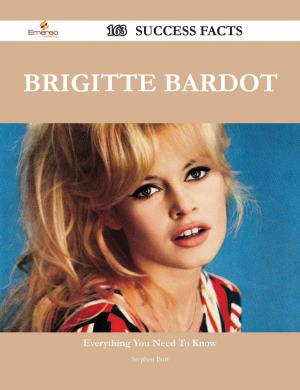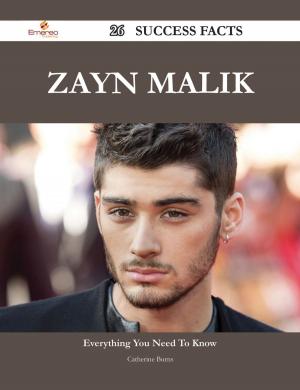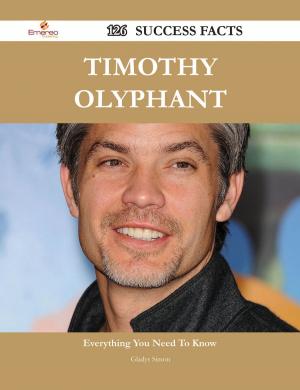Aristotle and Ancient Educational Ideals - The Original Classic Edition
Nonfiction, Reference & Language, Reference, Fiction & Literature| Author: | Thomas Davidson | ISBN: | 9781486446872 |
| Publisher: | Emereo Publishing | Publication: | March 18, 2013 |
| Imprint: | Emereo Publishing | Language: | English |
| Author: | Thomas Davidson |
| ISBN: | 9781486446872 |
| Publisher: | Emereo Publishing |
| Publication: | March 18, 2013 |
| Imprint: | Emereo Publishing |
| Language: | English |
Finally available, a high quality book of the original classic edition of Aristotle and Ancient Educational Ideals. It was previously published by other bona fide publishers, and is now, after many years, back in print.
This is a new and freshly published edition of this culturally important work by Thomas Davidson, which is now, at last, again available to you.
Get the PDF and EPUB NOW as well. Included in your purchase you have Aristotle and Ancient Educational Ideals in EPUB AND PDF format to read on any tablet, eReader, desktop, laptop or smartphone simultaneous - Get it NOW.
Enjoy this classic work today. These selected paragraphs distill the contents and give you a quick look inside Aristotle and Ancient Educational Ideals:
Look inside the book:
Although it is true that the Greeks, especially after the Persian Wars, regarded themselves as a superior and chosen people, calling all others 'barbarians,' and considering them as fit only to be slaves, it is not the less true that hardly one of all the arts and sciences which they ultimately carried to a high degree of perfection had its origin in Greece proper. ...Among the many educational theorists of Greece, there are six who especially deserve to be considered: (1) Pythagoras, who in Southern Italy sought to graft on the Doric ideal a half-mystical, half-ethical theology, and a mathematical theory of the physical world; (2) Xenophon, who sought to secure the same ideal by connecting it with a monarchical form of government; (3) Plato, who sought to elevate it, and find a sanction for it in his theory of super-sensuous ideas; (4) Aristotle, who presented in all its fulness the Hellenic ideal, and sought to find sanctions for it in history, social well-being, and the promise of a higher life; (5) Quintilian, who, in Rome, embodies the rhetorical or worldly education of the Hellenistic period; and (6) Plotinus, who presents an ideal of philosophical or other-worldly education, and paves the way for the triumph of Christian dogma. ...When we consider the different arts that have been discovered, and distinguish between those which relate to the necessary conditions of life and those which contribute to the free enjoyment of it (???????), we always consider the man who is acquainted with the latter wiser than him who is acquainted with the former, for the reason that the sciences of the latter have no reference to use.
Finally available, a high quality book of the original classic edition of Aristotle and Ancient Educational Ideals. It was previously published by other bona fide publishers, and is now, after many years, back in print.
This is a new and freshly published edition of this culturally important work by Thomas Davidson, which is now, at last, again available to you.
Get the PDF and EPUB NOW as well. Included in your purchase you have Aristotle and Ancient Educational Ideals in EPUB AND PDF format to read on any tablet, eReader, desktop, laptop or smartphone simultaneous - Get it NOW.
Enjoy this classic work today. These selected paragraphs distill the contents and give you a quick look inside Aristotle and Ancient Educational Ideals:
Look inside the book:
Although it is true that the Greeks, especially after the Persian Wars, regarded themselves as a superior and chosen people, calling all others 'barbarians,' and considering them as fit only to be slaves, it is not the less true that hardly one of all the arts and sciences which they ultimately carried to a high degree of perfection had its origin in Greece proper. ...Among the many educational theorists of Greece, there are six who especially deserve to be considered: (1) Pythagoras, who in Southern Italy sought to graft on the Doric ideal a half-mystical, half-ethical theology, and a mathematical theory of the physical world; (2) Xenophon, who sought to secure the same ideal by connecting it with a monarchical form of government; (3) Plato, who sought to elevate it, and find a sanction for it in his theory of super-sensuous ideas; (4) Aristotle, who presented in all its fulness the Hellenic ideal, and sought to find sanctions for it in history, social well-being, and the promise of a higher life; (5) Quintilian, who, in Rome, embodies the rhetorical or worldly education of the Hellenistic period; and (6) Plotinus, who presents an ideal of philosophical or other-worldly education, and paves the way for the triumph of Christian dogma. ...When we consider the different arts that have been discovered, and distinguish between those which relate to the necessary conditions of life and those which contribute to the free enjoyment of it (???????), we always consider the man who is acquainted with the latter wiser than him who is acquainted with the former, for the reason that the sciences of the latter have no reference to use.















